Package Exports
- next-openapi-gen
- next-openapi-gen/dist/index.js
This package does not declare an exports field, so the exports above have been automatically detected and optimized by JSPM instead. If any package subpath is missing, it is recommended to post an issue to the original package (next-openapi-gen) to support the "exports" field. If that is not possible, create a JSPM override to customize the exports field for this package.
Readme
next-openapi-gen
next-openapi-gen super fast and easy way to generate OpenAPI 3.0 documentation automatically from API routes in NextJS.
Prerequisites
- Next.js >= 14
- Node >= 18
Interfaces
- Swagger
- Redoc
- Stoplight Elements
- RapiDoc
Features
- Automatic OpenAPI Generation: Generate OpenAPI 3.0 documentation from your Next.js routes, automatically parsing TypeScript types for parameters, request bodies and responses. Field comments in TypeScript types are reflected as descriptions in the OpenAPI schema.
- Complex TypeScript Types: Use complex TypeScript types, such as
nested objects,arrays,enumsandunions(mapped to anyOf). This enables a more comprehensive representation of data structures directly in the OpenAPI schema. - JSDoc-Based Documentation: Document API routes with optional JSDoc comments, including tags like
@openapi,@auth,@desc,@params,@body, and@responseto easily define route metadata. - Multiple UI Interfaces: Choose between
Swagger UI,Redoc,Stoplight ElementsorRapiDocto visualize your API documentation. Customize the interface to fit your preferences. - Real-time Documentation: As your API evolves, regenerate the OpenAPI documentation with a single command, ensuring your documentation is always up to date.
- Easy configuration: Customize generator behavior using the
next.openapi.jsonconfiguration file, allowing for quick adjustments without modifying the code.
Installation
yarn add next-openapi-genUsage
Step 1: Initialize Configuration and Setup
Run the following command to generate the next.openapi.json configuration file and automatically set up Swagger UI with /api-docs routes:
npx next-openapi-gen init --ui swagger --docs-url api-docsParameters:
- ui:
swagger|redoc|stoplight|rapidoc - docs-url: url on which api docs will be visible
This command does the following:
- Generates a
next.openapi.jsonfile, which stores the OpenAPI configuration for your project. - Installs Swagger UI to provide an API documentation interface.
- Adds an
/api-docsroute in the Next.js app for visualizing the generated OpenAPI documentation.
Step 2: Add JSDoc Comments to Your API Routes
Annotate your API routes using JSDoc comments. Here's an example:
| Login route | Swagger |
|---|---|
//app/api/auth/login/route.ts
type LoginBody = {
email: string; // user email
password: string; // user password
};
type LoginResponse = {
token: string; // auth token
refresh_token: string; // refresh token
};
/**
* Authenticate as a user.
* @desc: Login a user
* @body: LoginBody
* @response: LoginResponse
*/
export async function POST(req: Request) {
...
} |
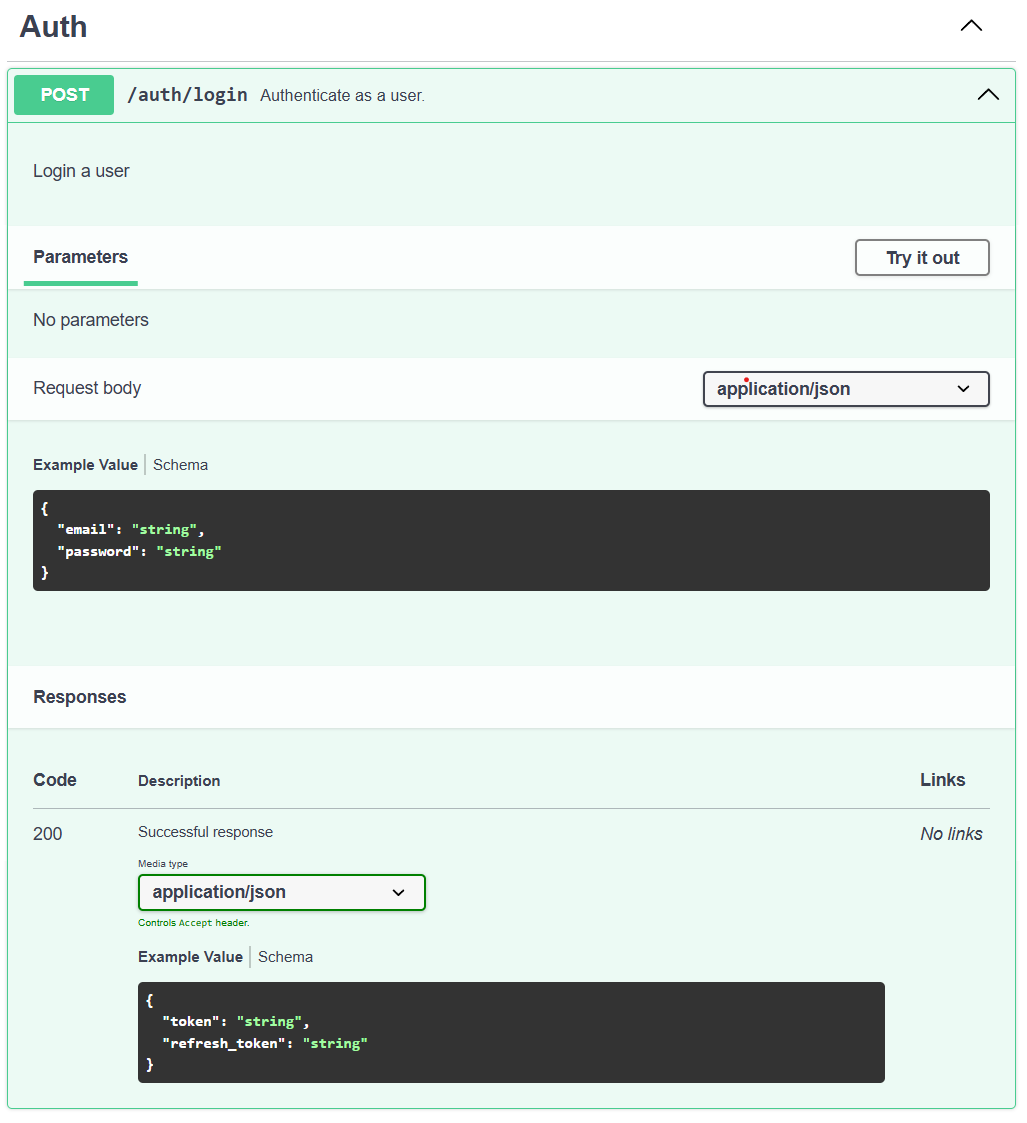
|
| Users route | Swagger |
//app/api/users/route.ts
enum ROLE {
OWNER,
MEMBER,
}
type User = {
id: number;
name: string;
email: string;
role: ROLE;
address: Address;
};
type Address = {
line1: string;
line2?: string;
city: string;
postalCode: string;
};
type UsersParams = {
search: string; // search by
role?: ROLE; // filter by role
page?: number; // page number
};
type UsersResponse = {
page?: number;
count?: number;
data: User[];
};
/**
* List all users.
* @auth: bearer
* @params: UsersParams
* @response: UsersResponse
*/
export async function GET(req: Request) {
...
} |
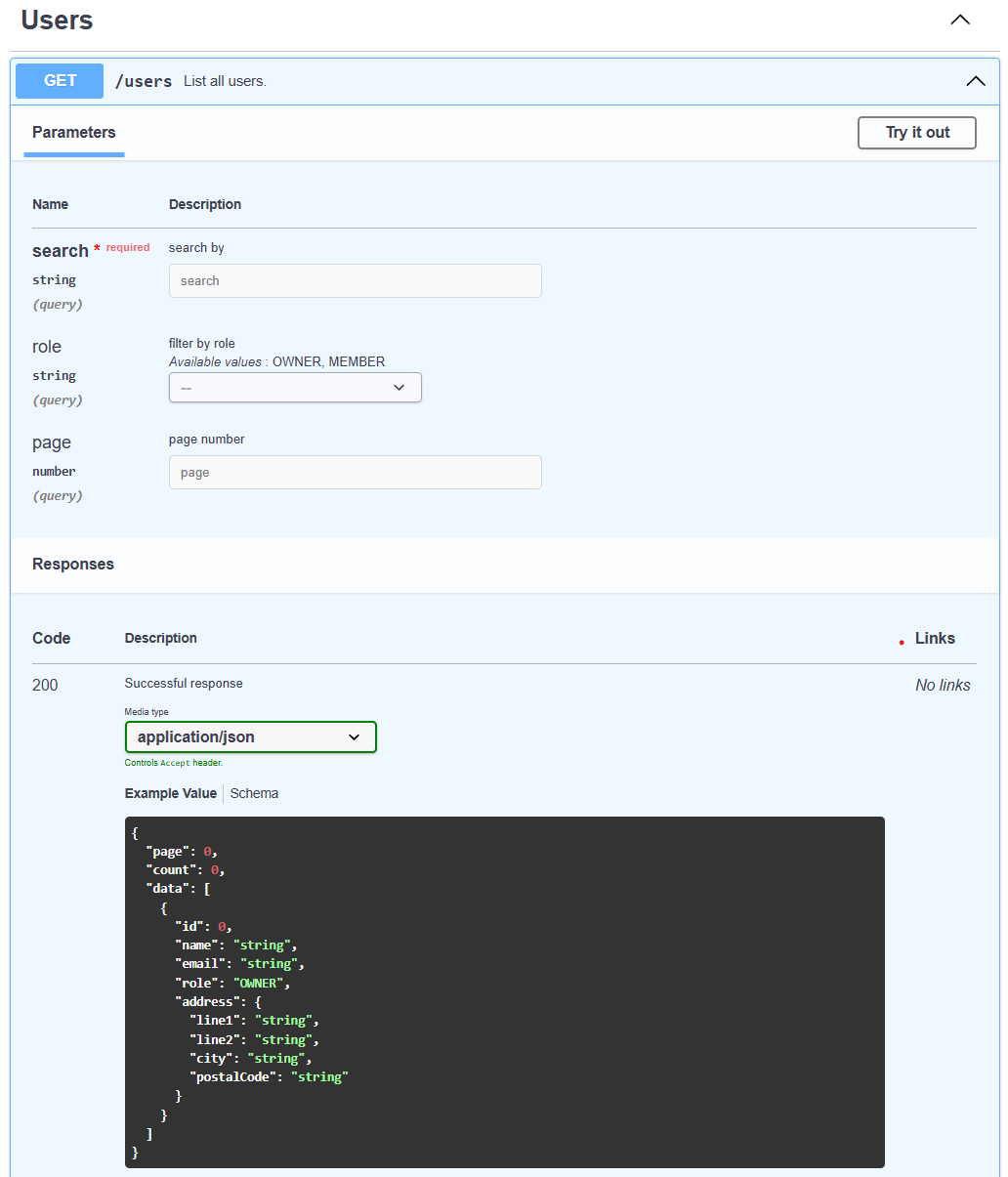
|
Step 3: Generate the OpenAPI Specification
Run the following command to generate the OpenAPI schema based on your API routes:
npx next-openapi-gen generateThis command processes all your API routes, extracts the necessary information from JSDoc comments, and generates the OpenAPI schema, typically saved to a swagger.json file in the public folder.
Step 4: View API Documentation
With the /api-docs route generated from the init command, you can now access your API documentation through Swagger UI by navigating to http://localhost:3000/api-docs.
JSDoc tags
@openapi: Marks the route for inclusion in the OpenAPI specification.@auth: Specifies authentication type used for API route (basic,bearer,apikey).@desc: Provides a detailed description of the API route.@params: Specifies the TypeScript interface for the query parameters.@body: Specifies the TypeScript interface for the request body.@response: Specifies the TypeScript interface for the response.
Configuration Options
The next.openapi.json file allows you to configure the behavior of the OpenAPI generator, including options such as:
- apiDir: (default:
./src/app/api) The directory where your API routes are stored. - schemaDir: (default:
./src) The directory where your schema definitions are stored. - docsUrl: (default:
./api-docs) Route where OpenAPI UI is available. - ui: (default:
swagger) OpenAPI UI interface. - outputFile: (default:
./swagger.json) The file where the generated OpenAPI specification will be saved inpublicfolder. - includeOpenApiRoutes: (default:
false) Whentrue, the generator will only include routes that have the@openapitag in their JSDoc comments.
Interface providers
| SwaggerUI | Redoc | Stoplight Elements | RapiDoc |
|---|---|---|---|

|
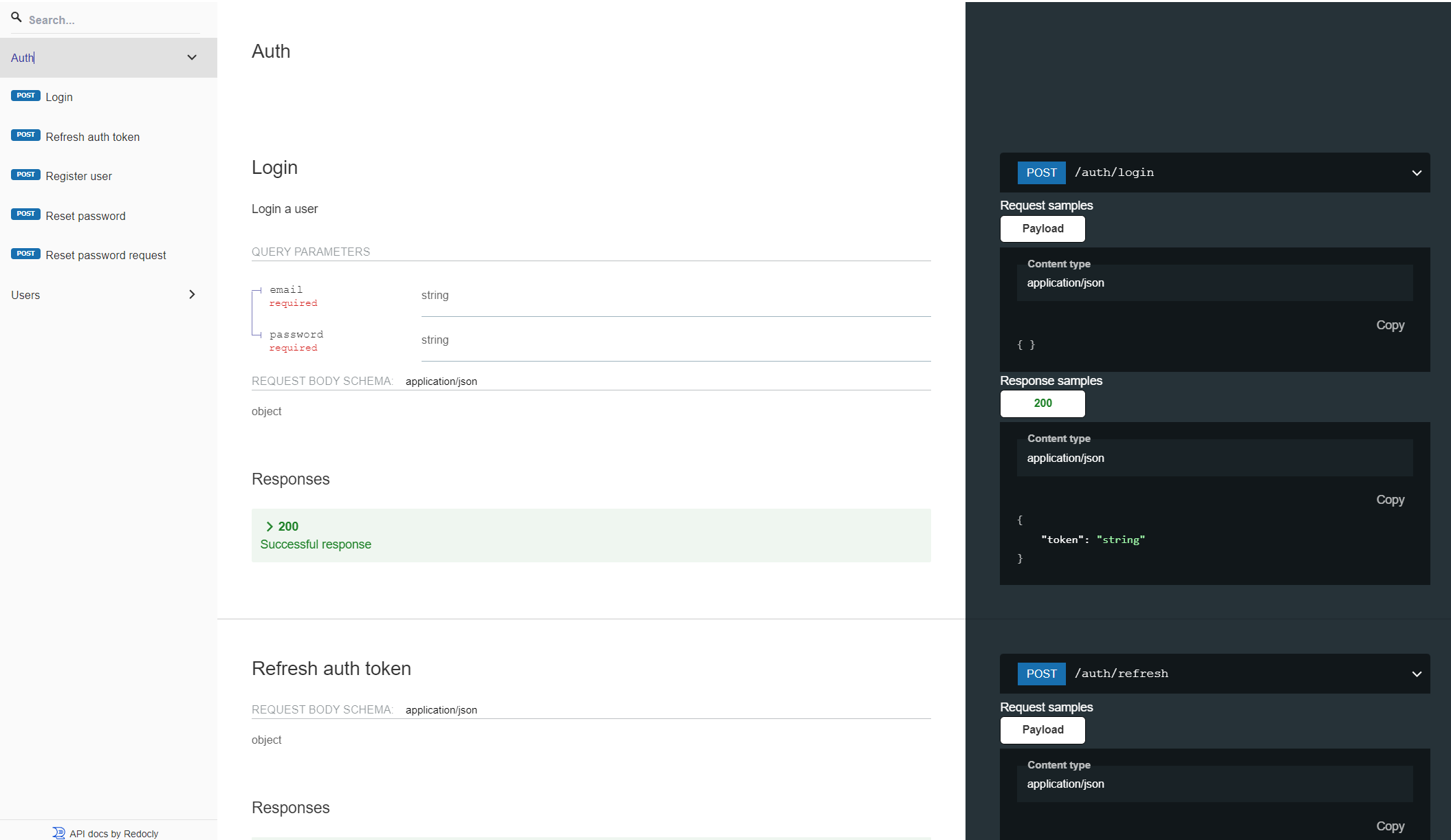
|
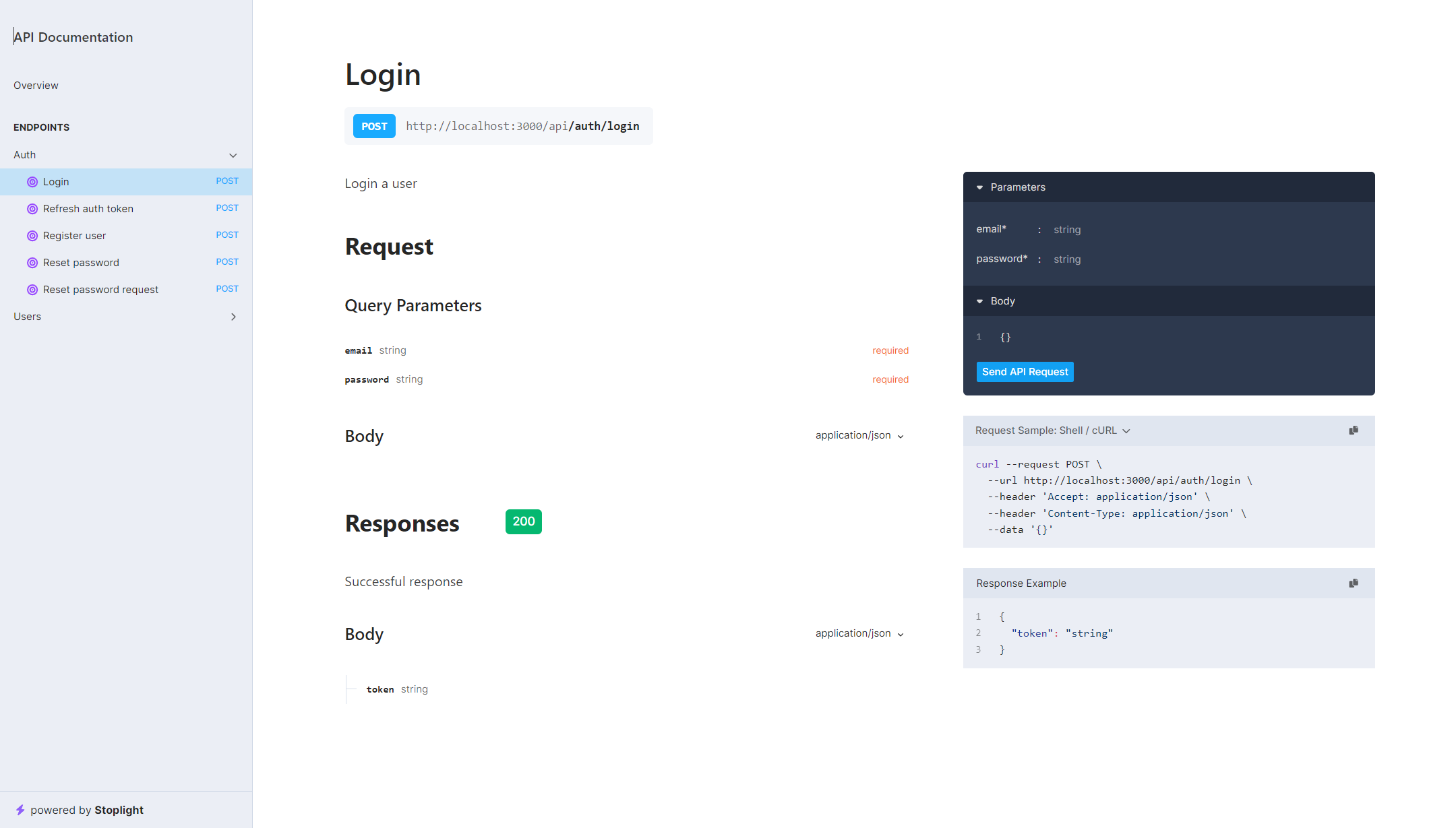
|
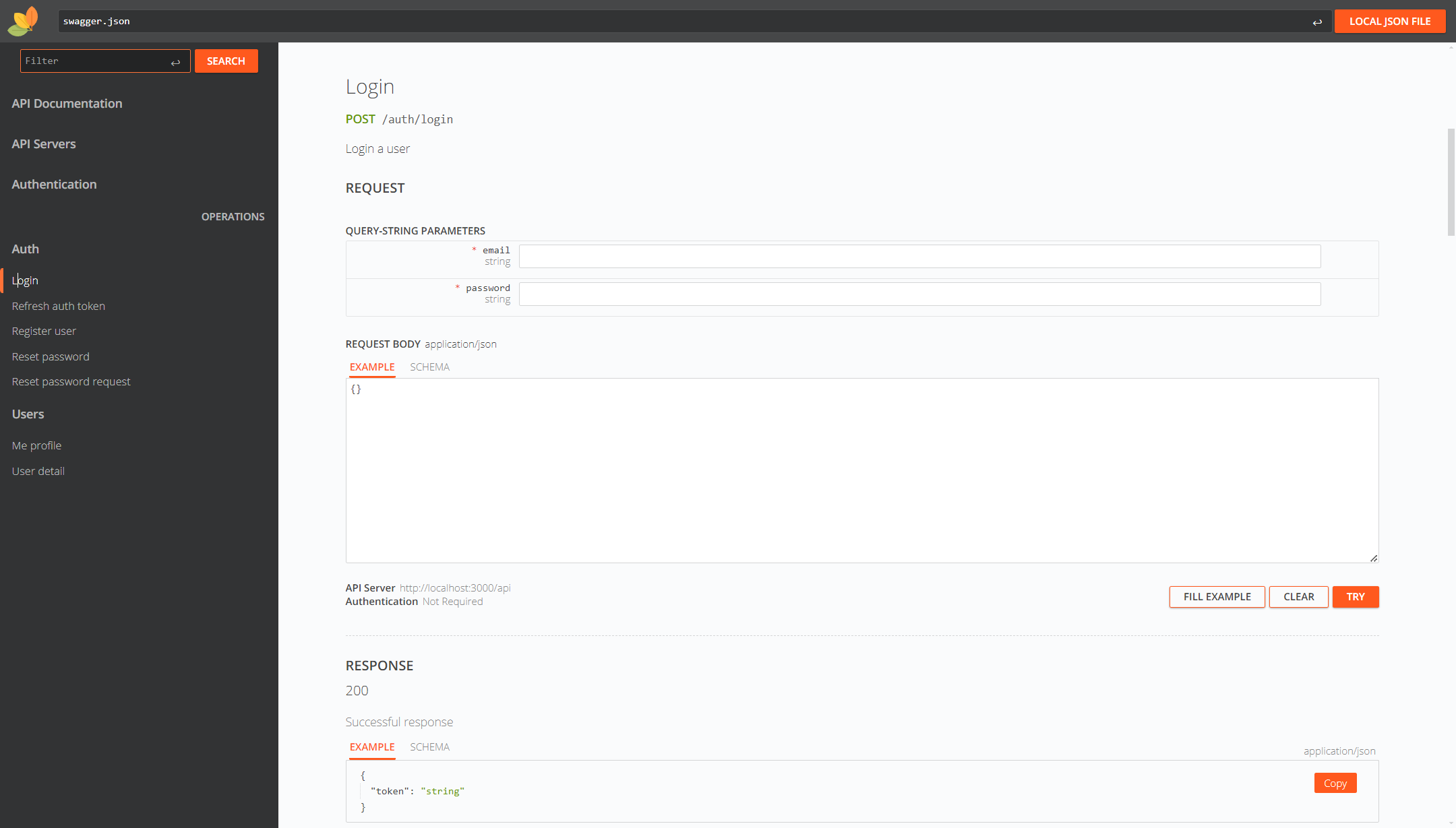
|